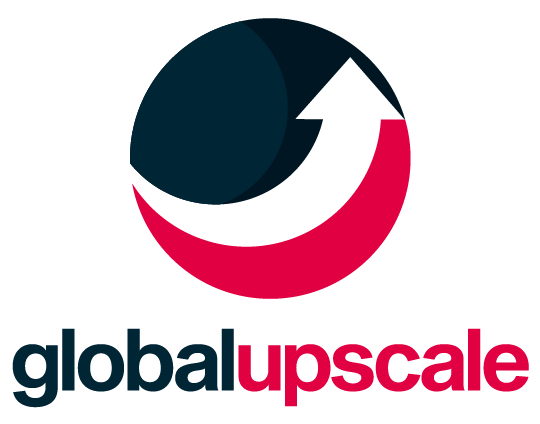SEO (Search Engine Optimization) is crucial for your success if you run a website. It’s not enough to simply set up your site—you need to make sure it’s optimized so it shows up in search results and attracts visitors. When done right, SEO helps you get more traffic and conversions and ultimately boost your revenue.
Some interesting SEO statistics to consider
- Google organic search accounts for 57.8% of the world’s web traffic.
- High-quality content, page experience, and links are the top 3 ranking factors of Google’s search results. (SearchEngineJournal)
- 49% of marketers report that organic search has the best ROI of any marketing channel (Search Engine Journal)
- Featured snippets dominate 50-65% of all number-one spots. (Authority Hacker)
Basic SEO techniques like keyword research, on-page optimization, and SEO plugins are essential, but they won’t be enough to take your website to the next level. You’ll need to dive into more advanced on-page SEO strategies to improve your site’s performance and stand out in search results. These techniques will help you refine your site, make it more visible to search engines, and ultimately attract more visitors. But before we go any further, let us understand what is on-page SEO and why it is vital for businesses.
What is On-Page SEO? Why Is On-Page Optimization Important?
On-page SEO involves optimizing various parts of a website to help search engines understand, crawl, and rank your pages for relevant queries. While off-page factors like backlinks are important, on-page optimization is crucial because it establishes the foundation for search visibility.
On-page factors include content and elements like website architecture, speed, mobile-friendliness, and URL structure, all of which contribute to better SEO.
Why On-Page SEO is Important?
- It helps search engines discover and present your pages to users.
- Pages with higher rankings get more clicks and visitors.
- A strong ranking builds your brand’s trustworthiness.
- It ensures your content matches your audience’s needs.
- It sets the stage for other SEO activities, such as building backlinks.
This guide will walk you through 13 advanced on-page search engine optimization elements that you must follow. Let’s get started and ensure your site is ready for users and search engines.
13 Advanced On-Page SEO Techniques to Follow
- Conduct an SEO Audit
Start by checking how well your website is performing. You can use tools like Semrush to get a list of tasks to work on. For example, you’ll want to look at your on-page SEO optimization, such as keyword optimization, and off-page SEO, like backlinks. The audit will help you identify areas that need improvement, such as Google indexing issues. You can use free tools and WordPress plugins to fix any problems.
- Review Internal Links, Backlinks, Permalinks, and Broken Links
Links are crucial for SEO. Ensure that internal links within your site are working, and focus on getting high-quality backlinks from other reputable sites. Make sure your permalinks (URL structure) are SEO-friendly. Also, check for any broken links (404 errors) and use redirects to fix them.
- Use Image Alt Text
Image alt text helps Google understand your images and can improve your SEO. Always include a description of the image, and if possible, use your target keywords. This helps boost your ranking when users search for related content.
- Use Long-Tail Keywords
Long-tail keywords are specific phrases that people search for. They might not get a lot of traffic individually, but when you use many of them over time, they help you reach more people and improve your rankings. Start adding these keywords to your blog content and other relevant areas.
- Add Schema Markup
Schema markup helps search engines better understand your content. It’s a type of code you can add to your website to make it easier for Google to find and rank you. If you’re unfamiliar with coding, some plugins can help you implement schema markup easily.
- Optimize for Page Speed
A faster website boosts your SEO rankings. Use Google’s free PageSpeed Insights tool to check how quickly your site loads. Improving speed makes your website more appealing to Google. If you use Divi, it already has features to help with performance. You can also choose the right hosting provider to speed up your site. For example, a well-optimized provider like Bluehost or SiteGround can significantly improve speed. If you’re using WordPress, plugins can further help speed up your database.
- Avoid Keyword Cannibalization
Stop using the same focus keyword in multiple pieces of content. This can make your website compete against itself. Instead, refine the content you already have or use related keywords. For instance, if you’re focusing on “SEO tips,” create variations like “SEO strategies” or “SEO guides” for different posts. This helps avoid competition between your pages and increases your chances of ranking. If you want to learn more, check guides on fixing keyword cannibalization.
- Make Your Site Mobile-Friendly
Google ranks mobile-optimized websites higher. With 63% of online searches happening on mobile devices, your website must look great and work well on mobile. For example, responsive design adjusts automatically to different screen sizes, ensuring a smooth experience for users. Google prioritizes these sites, so make sure your website is mobile-responsive to improve rankings.
- Create SEO-Optimized Landing Pages for Products/Services
When promoting products or services, direct visitors to specific landing pages rather than your homepage. For example, if you’re offering copywriting services, create a page specifically for that service, explaining it in detail and including a call-to-action (CTA) like “Contact us for a free consultation.” If you’re focused on SEO services, build a landing page dedicated to that, optimized with keywords like “SEO audit services.” Divi and plugins like SeedProd can help you create these pages easily, increasing conversions.
- Understand User Experience and Behavior
Studying how users interact with your website can indirectly improve SEO. By improving user experience (UX), you reduce bounce rates and keep visitors on your site longer, which can eventually lead to more conversions. Tools like Google’s Chrome User Experience Report provide insights into your website’s performance. Microsoft Clarity shows detailed user behavior with heatmaps and session recordings, helping you find issues like broken buttons. You can audit your site’s UX with step-by-step guides to ensure it works smoothly for your users.
- Make Google Happy
To improve your website’s SEO, focus on a few key areas.
- Optimize for Featured Snippets to appear at the top of search results.
- Improve local SEO to help your business appear in local searches.
- Ensure your Google My Business profile is complete and accurate.
Use Google Search Console to monitor your website’s performance in search results, and submit your XML sitemap to help Google crawl your site.
- Update Your Posts and Guides
Keep your blog posts and guides fresh to stay relevant. Regular updates allow you to improve your content by adding new information, fixing outdated details, and incorporating current keywords. Here’s how you can refresh your posts.
- Revise the introduction and body content.
- Replace old images and add new ones with alt text.
- Add recent research or statistics.
- Fix broken links and include new internal links.
- Add long-tail keywords that match current trends.
- Create an SEO-Focused Content Strategy
To improve SEO, create a content strategy that targets specific keywords and topics. A good plan includes content clusters, where main articles (cornerstone content) link to related subtopics. Start by using keyword mapping to track your keywords and optimize your content. This ensures your content aligns with SEO goals, helping you rank higher in search results.
Conclusion
There are many strategies for advanced SEO techniques to help your website rank higher on Google. It’s important to choose the steps that best align with your goals and then take action. Building a strong online presence and improving your website’s SEO is a process of constant learning and adjustment.
Our On-page SEO services at Global Upscale will be designed to boost your website’s visibility and ranking on Google. We start with a detailed SEO audit to find areas for improvement and growth. Then, we use both on-page and off-page SEO techniques to improve your site’s content. If needed, we’ll optimize your Google My Business (GMB) page to help you rank higher in local search results. We enhance your site’s on-page elements with keyword-rich descriptions, useful web tools, and GMB features like posts and Q&A. Additionally, we work on improving your site’s authority and acquiring high-quality backlinks to increase traffic and help your site get noticed by search engines.We’d love to hear from you! Whether you have questions, want to schedule an appointment, or need more information about our services, our team is here to assist you.



